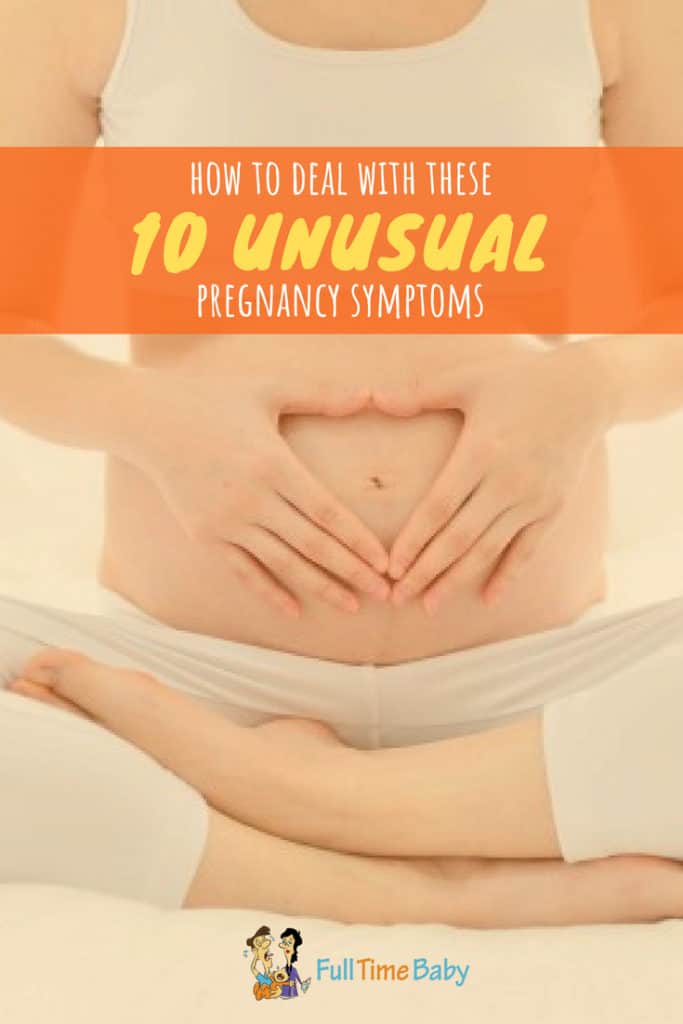The pregnancy journey can be overwhelming. You’ve never felt happier, more excited, or more nervous in your life. All of these emotions are natural and nothing to be afraid of. Whether this is your first pregnancy or not, this cocktail of feelings will always be there.
When you’re expecting, you’re well aware that you’ve got a wild ride ahead of you. You might think you know what’s going to happen to your body—big belly, morning sickness and cravings, right? Wrong. Pregnancy is different for every woman. Some pregnancy symptoms, while totally normal, can still be surprising. Don’t freak out when these symptoms occur, take a deep breath and check out these helpful hints to counteract weird pregnancy side effects.
How to tackle Pregnancy
1) Your nose does things… a lot of things
The medical name for this symptom is pregnancy rhinitis. Rhinitis occurs because an increase in hormones and blood production causes the inside of the nose to swell and increase mucus production. Potential side effects are; itchy and runny nose, constant need to blow your nose, nasal pressure, and frequent sneezing.
How to deal: Luckily once the baby is born, this will stop. For relief in the meantime try; upping your fluid intake, running a humidifier at night, or sleeping with your head propped up. Keep plenty of tissues in stock and readily available!


2) Leaking (from places other than your nose)
Speaking of sneezing, a lovely side effect of that is leaking, as in peeing a little bit when you sneeze or laugh. Pregnancy messes with the normal contracting and relaxing of your urethra. There’s also added pressure to your bladder due to the growing baby next door. Which leads to issues with leaking throughout the day.
How to deal: Let yourself go to the bathroom—a lot. If your bladder is empty, leakage is less likely to happen. Also stock up on panty liners and consider wearing them frequently to counteract leaks.
3) Loud snoring
This one can also fall under another side effect of pregnancy rhinitis. Swollen mucus membranes in your nose cause many women to start snoring when pregnant, often very loudly.
How to deal: Saline drops before bed can alleviate the congestion and lessen snoring. Also, sleeping on your side or propping yourself up with pillows can stop the snoring that happens when you’re flat on your back. Breathe right strips are another good option to open the nasal passages.
4) Serious heartburn
There’s a muscle between your esophagus and stomach that both helps to push food through your digestive track and keeps acid down. When pregnant, hormones cause those muscles to relax, which in turn leads to heartburn. This is also referred to as GERD (gastroesophageal reflux disease), and can be lead to severe discomfort.
How to deal: Figure out what causes your heartburn and modify your diet to avoid those items. Common culprits can be fried foods, carbonated drinks, citrus fruits/juices, or spicy foods. You can also try more frequent, but smaller meals or portions. Sleeping at an angle can also allow gravity to help with stomach acid staying down. If you continue to experience symptoms, your doctor can request further testing. You can also click here for more information on ultrasound services that you can turn to during your pregnancy.
5) Do I taste… metal?
The official name of this weird symptom is Dysgeusia. This usually occurs in the first trimester, it’s due to the increase in hormones which leads to a change in your sense of smell and taste. Basically you’ll feel like you have a mouth full of pennies.
How to deal: As easy solution is to brush your teeth and use mouthwash. If you need a quick fix during the day when brushing isn’t an option, try mints or gum. You can also try nibbling on dull foods like saltines to get rid of the taste.
6) Bigger feet
You know that you belly and other parts of your body will grow with a baby on board, but did you know your feet may as well? Medical name: edema. Water retention and severe swelling will cause pregnant women’s feet to sometimes get so big they need a larger shoe size.
How to deal: First- put your feet up! Elevating your feet above your heart will help with swelling. While the last thing you might want to do is exercise—it will help. Regular movement will make sure your circulatory system is pumping excess fluids around your body, instead of staying in the feet. There are many other natural ways to help with this symptom, check out some more strategies here.
You should be concerned about swelling when it is accompanied by other symptoms such as pain and redness as it could a sign of a blood clot. Swelling that has spread to your face may also be a sign of preeclampsia. Consult your doctor if these symptoms arise.


7) Changes to your hair
Due to hormones, some women see an increase in hair all over their bodies. The combination of increased estrogen and androgen levels in your body and the effects of prenatal vitamins can leave hair shinier and fuller. Not a bad symptom to deal with! The downside is hair in other places you might not normally experience, i.e., belly, face, or nipples.
How to deal: First enjoy the positive effects while you can! If you have thick and luscious locks while pregnant, after you give birth it will go back to normal. Some women even experience an over-correction and lose hair by the fistful. For body hair—if you can’t stand it, you can tweeze or shave. However be careful with waxing as you might have a different tolerance for pain or sensitive skin when pregnant.
8) Emotional rollercoaster
While mood swings are a common symptom of pregnancy, you might not expect such rapid change in your emotions. From fits of anger and grumpiness to deep sentimentality, with crying jags along the way—your emotions will be all over the board. Not too mention, nesting in your last trimester. The irrational needs to clean and prepare your home is not easy when you feel as big as a house.
How to deal: This is a symptom that you just need to work with—give in to your feelings. If you are feeling overly-sentimental—embrace it! This is a once in a lifetime experience for women. Even if you have multiple pregnancies, each one is different. Look into ways that you can commemorate the pregnancy journey – whether that be with ultrasound recordings or making a journal or scrapbook.


9) Voice changing
Hormones are the culprit here again. Increased estrogen and progesterone levels cause your vocal cords to swell, which can lead to changes in your voice. You might notice your voice is lower or more raspy.
How to deal: This is another symptom that you just need to wait out, once you give birth your voice will go back to normal. If you use your voice for singing or acting you might want to take it easy, or see a specialist if you have specific questions/concerns.
10) Cervical or vaginal pain
This symptom will more than likely hit you at the end of your pregnancy. Cervical and vaginal pain is just gravity at work, your baby will drop as you get closer to your due date. This will cause pain and discomfort in the nerve endings of your cervix and vagina. These pains are completely normal as your body prepares for labor. Talk to your doctor if the pain is severe or accompanied with bleeding.
How to deal: Kegels are a pelvic floor exercise that will not only help strengthen your muscles in preparation for birth but also help aid cervical or vaginal pain leading up to birth. Bonus– kegels will also help you keep the vaginal muscles in shape after birth!
Be Prepared for Preganancy
Pregnancy is a journey of discovery and transformation, with each woman experiencing it in her own way. For some, it brings about a sense of joy and wonder. For others, it can be a time of significant physical discomfort and anxiety. But one thing is sure: there’s never been a more critical time to nourish and take care of your body and mind like you can during pregnancy. It’s not uncommon to feel vulnerable when pregnant, given the physical changes in your body; additionally, many women grapple with fears about their unborn child’s health or safety. Pregnancy is a wonderful and weird time, with an entire host of side effects and symptoms. Remember to enjoy the journey and always check in with your doctor if you feel like something isn’t right. After pregnancy, you’ll be able ready brave car rides with a crying baby!


This post was written by Purusha Rivera, founder of My Baby’s Heartbeat Bear.
